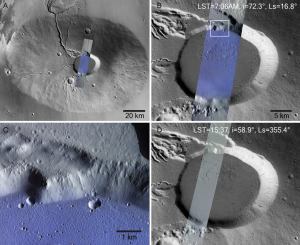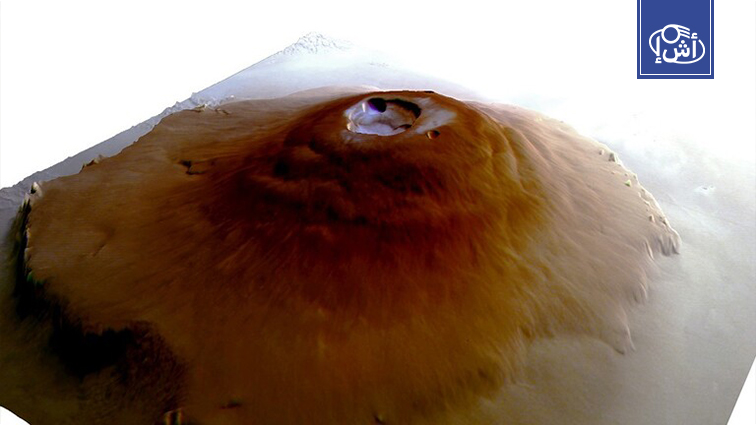Astronomers have detected water ice on the peaks and slopes of Mount Olympus, the largest volcano on Mars, in addition to other volcanoes on the tropical Tharsis Plateau.
This discovery, according to the information office of Brown University, indicates the possibility of the presence of water in the tropical regions of Mars, which changes the traditional view about the severe drought that was thought to control those regions.

Researcher Adomas Valentinas from Brown University stated that scientists previously believed that there was no water ice on mountaintops near the equator of Mars. Due to the high temperatures during the day, the low density of the atmosphere, and the high level of solar radiation, but it seems that these ice reserves were formed during a period when the climate of Mars was different, and perhaps rain was falling on these volcanoes.
This discovery was made by studying images taken of the largest volcanoes on Mars, by the cameras of the European “Mars Express” mission and the Russian-European “ExoMars-TGO” probe.
Scientists showed special interest in these volcanoes after observing water clouds carrying large amounts of moisture near them on the Tharsis Plateau.

Spectral studies of these deposits using “ExoMars-TGO” devices showed that they consist of water ice or other forms of solid water deposits and appear periodically at about 07:00 Martian time and disappear in the next hour.
Studies have also shown that these frozen deposits appear on the peaks and slopes of Olympus, Arsia, and other volcanoes during the winter, fall, and spring seasons, and are completely absent in the Martian summer.
Since the 1960s, 47 missions have been launched towards Mars, but only more than half of this number was able to complete the mission, whether partially or completely. During the past years, exploration missions have been active, as the UAE sent the “Path of Hope” on February 9, 2021.
In the same month, China launched the “Tianwen-1” probe, which reached Mars orbit. It aimed to study the surface of Mars and collect scientific data about it, and on February 18, 2021, the American “Perseverance” rover landed on the surface of Mars with the aim of searching for signs of ancient life and collecting samples of rocks and soil for later study on Earth.
Earth receives a laser signal from a distance of 226 million km from a spacecraft
